Qatar Affirms Progress in US-Iran Prisoner Exchange Agreement
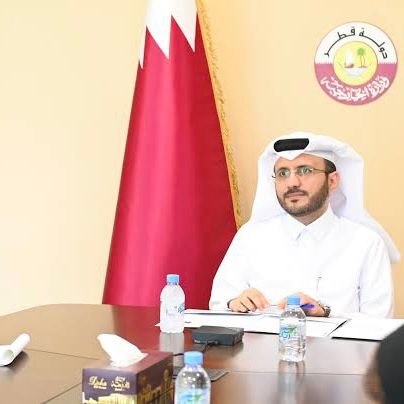
Qatar's Foreign Ministry spokesperson confirms that the nation has successfully mediated a US-Iran prisoner exchange

Qatar's Foreign Ministry spokesperson confirms that the nation has successfully mediated a US-Iran prisoner exchange
, Majed bin Mohammed al-Ansari underlined Qatar’s important role in achieving consensus between the two sides and facilitating communication with various stakeholders for the implementation of the agreement. This includes the release of prisoners and the $6 billion Iranian funds held in South Korea would be unfrozen and sent to an account in Qatar that Iran could access.
However, Al-Ansari did not reveal specific details regarding the exchange location of the prisoner exchange or the transfer of frozen funds to Qatari banks. He said, "Such details will be announced in due course,” he said.
This development follows a two-year mediation effort by Qatar and Oman, which paved the way for the US and Iran to reach an agreement earlier this month.
The deal entails the release of five American prisoners detained in Tehran in exchange for the liberation of five Iranian prisoners held in the United States as well as the release of $6 billion of frozen Iranian assets.
On Tuesday, US National Security Advisor Jake Sullivan, said he was confident in the smooth process of the agreement and that the eventual release of the five American citizens was on track. However, he refrained from providing a specific timeline.
As a first step in this deal, Iran on August 10 released four imprisoned US citizens from Evin prison into house arrest, where they joined a fifth already under home confinement. These include businessman Siamak Namazi, 51, Emad Sharqi, 58, and environmental activist Morad Tahbaz, 67, who holds British nationality in addition to Iranian citizenship. The identities of the fourth and fifth Americans who either left prison or were under house arrest have not been disclosed.
Notably, Iranian Foreign Ministry spokesperson Nasser Kanaani, on Monday, articulated that a two-month timeline has been established for the implementation of the agreement with the United States.
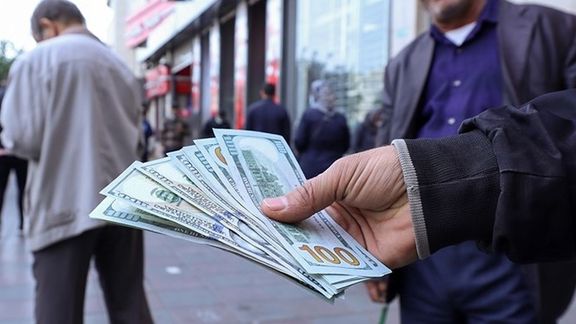
The Iranian government has intensified measures to step up control over its foreign currency exchange market, criminalizing a wide range of unofficial transactions.
The Central Bank of Iran announced on Tuesday that any unauthorized currency transactions and online advertisement are now considered a "crime."
The new decree includes any "unauthorized" currency transactions in the virtual space, such as buying and selling, transfers, as well as futures trading, brokerage, and promotion of these activities online "without the Central Bank's permission" are considered instances of criminal content.
The Central Bank's decision underscores the government's determination to tighten its grip on the foreign exchange market. Currency exchange small businesses that engage in such activities may face legal consequences, including potential criminal charges and revoking of their licenses.
The government is desperate to control the currency market hoping that it can artificially keep the Iranian rial high. The currency had lost its value 12-fold since 2018 when the United States withdrew from the JCPOA nuclear accord and imposed sanctions.
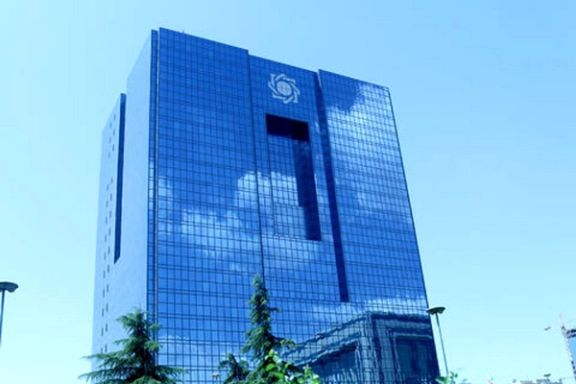
The devaluation of the currency has exacerbated an already high rate of inflation. More and more Iranians are moving to exchange their savings to other currencies, but due to various restrictive mechanisms imposed on currency exchange, the people are increasingly using unofficial means such as dealers who work from home as well as relatives and acquaintances.
According to an article by Iran's leading economic daily, transactions among relatives have become the primary choice for individuals to acquire or sell dollars.
The current boom in home-based exchange offices is driven by several factors, the paper said, noting that due to high inflation in recent years, purchasing dollars is considered as an investment option for households, effectively turning Iranian families into potential exchange offices.
Another factor is the complicated regulations of the official market, multiple exchange rates, and restrictive conditions for buying and selling dollars in authorized exchange offices, lead family-run exchange businesses to become the preferred choice for households.
The imposition of taxes on transactions has also turned people away from official currency transactions. Another factor contributing to the growth of home-based exchange offices is people’s reluctance to go to the black market due to the risks associated with dealing with black-market dealers, the daily added.
“For example, someone planning to travel to foreign countries will first inquire among their acquaintances to see if anyone they trust has some of the needed foreign currency that they can obtain. Alternatively, they might hear from someone recently returned from abroad that they are willing to offer their foreign currency assets at a negotiated price, typically around the market rate,” Donyaye Eqtesad explained.
Earlier in August, the Central Bank dissolved the Iranian Exchange Offices Association (Kanoun-e Sarrafan-e Iran), a move that led to a sudden temporary hike in the dollar rate. One of the reasons mentioned for the move was a lack of cooperation with the CBI, meaning that the Association had been reluctant to engage in artificial machinations to keep the dollar low.
The Iranian Exchange Offices Association had previously reported the closure of nearly half of the country's exchange offices in the past year, calling it as the "Farzin masterpiece" in reference to Mohammad Reza Farzin – the governor of the Central Bank.
The government has also increased pressure on Iran Chamber of Commerce, Industries, Mines and Agriculture following an election for its chairman, contested by the hardliners of the regime. The chairman of the chamber, often referred to as the “private sector’s parliament” with over 400 members, has the role of coordinating between the private sector and government and is sometimes required to participate in meetings with government officials. Members of the chamber have often criticized regime policies that have led to an economic crisis, including a confrontational foreign policy. The chambers often produce economic reports that the government finds embarrassing, or they criticize proposed budget bills and other plans.
Amidst the government’s failed attempts to control the exchange market, the rial was trading nearly 500,000 to the US dollar. One year ago, the dollar traded at around 250,000 rials.
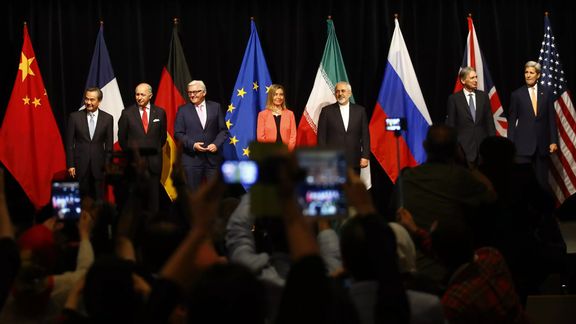
A former senior official of Iran’s Foreign Ministry and a lawmaker have warned that "infiltrators" in the upper echelons of the government pose a threat to national interests.
A former Director General for the Middle East, Mohammad Ali Sobhani, has said in an interview with Entekhab website last week that "a radical group of infiltrators are furthering measures that prevents the Iranian government from normalizing its relations with other countries."
In April 2021, former Foreign Minister Mohammad Javad Zarif had said that Russia interfered in Iran's domestic affairs particularly by dictating ideas to the top-level commanders of the revolutionary Guards (IRGC). Zarif said that Russia summoned former IRGC Qods Force commander Qassem Soleimani to Moscow on a few occasions.
Sobhani did not name any individual as an 'infiltrator,' but he stated that although he had suggested to the government the need for a team of experts to advance the negotiations to revive the 2015 nuclear deal, the government appointed Ali Bagheri-Kani as Iran's chief negotiator. He added that Bagheri did not seem to possess the right expertise and experience for the job. In the interview, Sobhani said, “I knew that he was not the right person to revive the JCPOA.”
He mentioned that due to Bagheri's performance, which yielded no tangible results, both sides came to the conclusion that the talks were not progressing effectively. Consequently, they considered the possibility of pursuing an interim agreement.
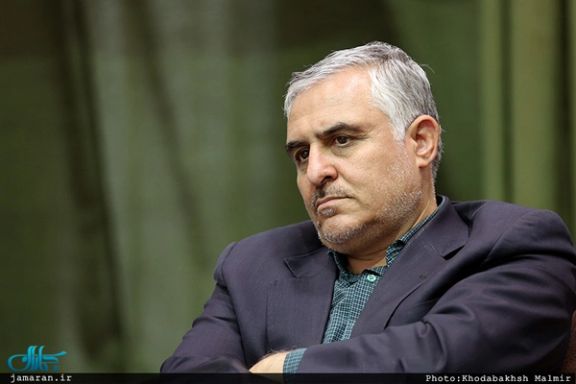
Sobhani further stated that if President Ebrahim Raisi was truly committed to serving the people of Iran, he should have promptly pursued a comprehensive agreement with the United States after assuming office in August 2021.
Sobhani remarked, “The government and its foreign minister consistently assert that Iran seeks an agreement, yet they contend that the United States does not uphold its promises. Bagheri has also reiterated that returning to the JCPOA is the only solution to the political impasse.”
He added, “However, two obstacles hinder an agreement between Iran and America. The first pertains to a radical group of potential infiltrators opposing the normalization of Iran's situation. The second set of obstacles involves the technicalities within the JCPOA.” If the government fails to normalize the country's situation by reaching an agreement and lifting sanctions, it will face more severe economic consequences.
The former diplomat reiterated, “I believe that Iran's main problem lies in the sanctions. These sanctions can only be lifted through international agreements, particularly with the United States.”
In a separate development, conservative lawmaker Ehsan Arkani stated in an interview with the Etemad Online website on Thursday that “a deviant current has infiltrated the government, the parliament, and the country's management system.”
Referring to a recent conflict between the parliament and the Interior Ministry, Arkani noted that “the influence of the deviant current extends beyond the Interior Ministry and has spread throughout a significant portion of the government, the parliament, and the country's administrative system.”
Attributing a significant portion of the country's problems to President Raisi's government, he highlighted a 50-percent inflation rate wreaking havoc, a standstill in agriculture and animal husbandry, a major water shortage, and unpaid teachers and pensioners. Arkani reminded that around 220 lawmakers had called on Raisi to run for the presidency in 2021.
He added that while the government is incapable of resolving these issues, it feigns disputes with the parliament to divert attention. Arkani reiterated, “A deviant group within the government is tarnishing the reputation of the parliament and its members while striving to ensure that the upcoming parliament's members will represent the government rather than the nation."
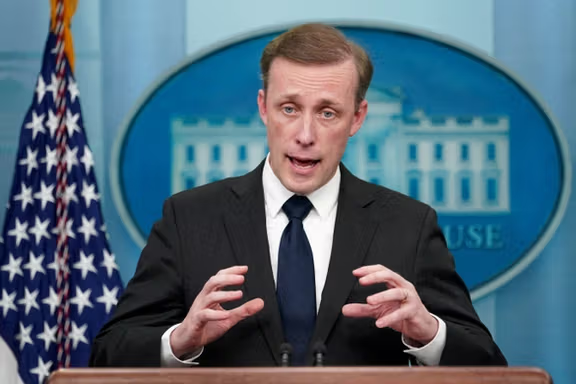
An understanding with Iran to eventually release five Americans remains on track, White House National Security Adviser Jake Sullivan said Tuesday but declined to offer any timeline.
Iran on August 10 released four imprisoned US citizens into house arrest, where they joined a fifth already under home confinement, in the first step of a deal under which $6 billion in Iranian funds in South Korea would be unfrozen and the five would eventually be allowed to leave.
"We believe that things are proceeding according to the understanding that we've reached with Iran. I don't have an exact timetable for you because there's steps that need to yet unfold. But we believe that that remains on track," Sullivan told reporters in a conference call.
South Korean media reported Monday the money has already been transferred to the Swiss central bank that would convert the funds to euros and send it to Iranian bank accounts in Qatar. Iran’s foreign ministry said Monday that it would take two months for the hostages to be allowed to leave.
Allowing the five to leave Iran, which could take weeks, would remove a major irritant between Washington and Tehran, which remain at odds on issues from the Iranian nuclear program to Tehran's support for regional Shi'ite militias.
The Iranian Americans who were allowed to leave Iran's Evin prison included businessmen Siamak Namazi, 51, and Emad Shargi, 58, as well as environmentalist Morad Tahbaz, 67, who also has British nationality. The identity of the fourth US citizen who left the prison has not been made public, nor has that of the fifth who was already under house arrest.
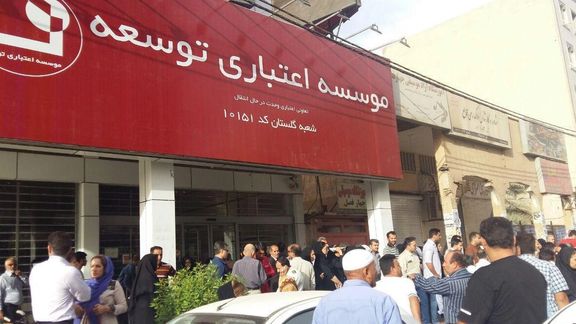
Islamic Republic’s officials are in damage control mode over the Central Bank of Iran’s decision to dissolve several banks and financial institutions by October.
The liquidation of Tosse-eh (Development) Credit Institution is in its final stages while the order to dissolve Ayandeh (Future) Bank was given to the Central Bank earlier this week. There are several other financial institutions, such as Caspian and Nour, that are set to dissolve or merge with other banks.
Reports of the liquidation of the unprofitable banks have been circulating in recent years, with Tosse-eh sending messages to its customers asking them to close their accounts until mid-March 2022. The institution has 30 branches all over Iran.
However, like a lot of other decisions in Iran, the liquidation never actualized, perhaps to avoid a mass panic among the population who already distrust the country’s banking system.
Lawmaker Gholamreza Marhaba, a member of the parliament’s economic committee, said Monday that according to the Constitution if a bank or financial institution strays from regulatory oversight and becomes unprofitable, the law outlines a series of measures, with the final step being dissolution or merger of the bank.
“There are unhealthy banks within the country's banking system, with some institutions in the liquidation phase, but we cannot discuss them in detail at present due to the lack of official information,” he explained.
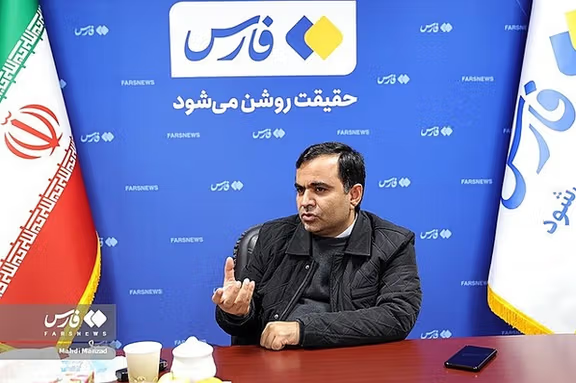
Marhaba, however, said, “I want to emphasize that fortunately, none of the private or state-owned banks are at risk of bankruptcy. These banks have sufficient assets to easily cover their losses and compensate them. Therefore, customers can rest assured that neither Ayandeh Bank nor any other bank is facing bankruptcy.”
The Ministry of Economy seeks to exercise greater oversight over the unprofitable banks to ensure their financial stability, especially the non-state banks that have engaged in non-banking activities, he noted and said that “military organizations” had created institutions and banks that did not perform successfully, and at least five of them have so far merged into Bank Sepah, the official bank of Iran’s Revolutionary Guards (IRGC).
The dissolution of banks should not be sensationalized in the media, and discussions about the fate of such banks should be held behind closed doors “to maintain customers' confidence without tarnishing the reputation of these financial institutions,” he added in remarks typical of regime insiders who prefer to hide negative news.
A similar approach was evident in remarks by ultra-conservative lawmaker Fereydoun Abbasi who called Monday for confidentiality of economic indicators and other statistics, under claims of security risk.
Mashregh News, a hardline website affiliated with Iran's Revolutionary Guard, published an article in July titled “Countdown for Bankrupt Banks,” explaining the threats of such entities for Iran’s economy.
“Bankruptcies among Iranian banks are becoming increasingly prominent due to the country's economic crisis, posing irreversible consequences if ignored,” Mashregh News said, noting that big loans to officials with links to regime insiders – called ‘Major Debtors’ in Iranian media – as well as a lack of transparency in real asset holdings are among the major factors behind the issue.
The Central Bank of Iran issued a warning earlier in the year, giving ultimatum to underperforming banks to rectify their financial situations by late-September, with CBI Governor Mohammadreza Farzin saying that any bank or financial institution that fails may face liquidation.
Government interventions, excessive borrowing, and a lack of accountability in the banking sector are cited as other key factors leading to these bankruptcies. While some banks may be temporarily bailed out by the government, the overall trust in Iran's financial system has been significantly eroded, making it difficult for the economy to recover. Iran’s government has been aggressively borrowing from quasi-public banks to fill its budgetary gap and keep its unprofitable companies afloat.
Abbas Pourkhosravi, a banking analyst, told Mashregh News that changing the current banking structure will help prevent bankruptcies, highlighting that “unless Iran establishes connections with the international banking system, significant transformations in the country's banking system will not occur.”
Bankruptcies in the banking sector have a ripple effect, impacting various industries and causing widespread dissatisfaction among the public, Mashregh News added, warning that restoring trust in the financial system will be a challenging task, as eroded confidence can have long-lasting consequences.
The government is in debt, and the banks are even more indebted, a vicious circle that sees accumulated losses concealed from the public through manipulating financial statements on losses and loans and deferring the losses to the following year.

Iran has unveiled a new drone, the Mohajer-10, with enhanced capabilities and increased flight duration, according to state news media agency.
Official statements from Iranian media on Tuesday reveal that the homemade UAV (unmanned aerial vehicle), has an operational range of 2,000 km and can fly for up to 24 hours.
Reports indicate that the drone is equipped to carry missiles, bombs, and hand grenades. It is also outfitted with electronic warfare and reconnaissance systems.
Iran claims that drone's payload capacity can now accommodate up to 300 kilograms, double that of its predecessor; the Mohajer-6 drone.
The Mohajer-10 was unveiled in the presence of President Ebrahim Raisi, and is part of a new generation of Iranian military drones.
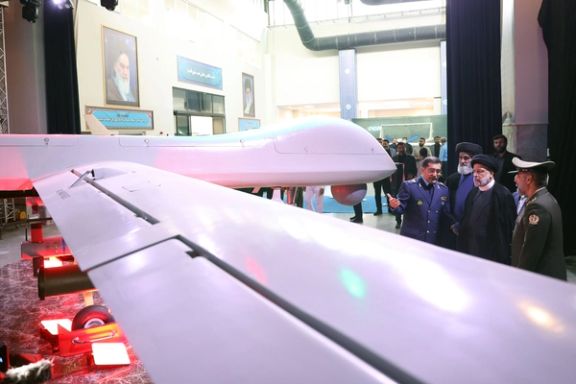
During the same ceremony, the air-launched Arman-1 bomb was also revealed. Concurrently, the release of a large quantity of advanced missiles – the Khorramshahr and Haj Qasem missiles – to the Armed Forces and the Aerospace Force of the Islamic Revolutionary Guard Corps (IRGC) has already commenced.
While US officials have alleged that Iran supplied Mohajer-6 drones, along with other unmanned aerial vehicles, to Russia to aid with their invasion of Ukraine, Iranian authorities have denied such allegations.
Rising tensions in the region have continued to draw global attention. Iran's attempt to seize two commercial vessels in early July was met with a resolute response from the United States, prompting Iran to withdraw, as confirmed by the Pentagon. Over the past two years, Tehran has reportedly harassed or seized more than 15 commercial ships in the broader Persian Gulf region.
In light of these challenges, the White House announced its intention to take decisive actions to safeguard stability in the region. While specific details were not provided at the time, subsequent actions have included a bolstered US military presence. In July, the Pentagon deployed F-16 and F-35 warplanes, and dispatched three naval vessels carrying over 3,000 sailors and marines, underscoring their commitment to maintaining a robust presence in the region.
Addressing the evolving situation, the Pentagon has affirmed its readiness to provide onboard armed protection to commercial vessels in the region, a development that Iranian media described as unprecedented. This move has also ignited discussions about the heightened prospects of potential military clashes in the region.
In recent months, numerous media reports have discussed covert diplomatic initiatives aimed at mitigating tensions with Iran. These efforts include the potential release of Tehran's frozen funds from nations like Iraq and South Korea, contingent upon Iran's commitment not to escalate its uranium enrichment to weapons-grade levels.
However, as of now, apart from a US sanctions waiver granted to Iraq to facilitate a partial fund release, there have been no notable developments. Simultaneously, in addition to the discourse surrounding Iran's nuclear program, the United States is actively pursuing the liberation of several American dual-nationals held captive in Iran. The unlocking of $7 billion in South Korean funds has been proposed as a concession in exchange for the release of these detainees.






